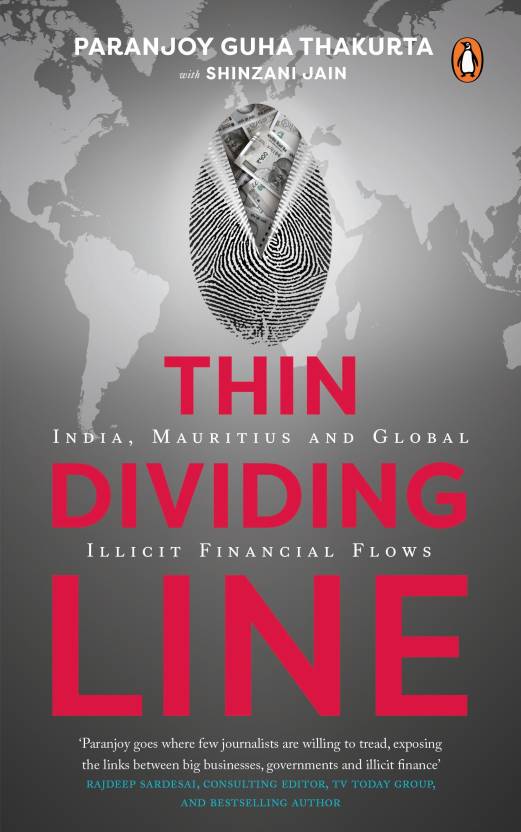The name sounded deceptively familiar, except it seemed to be in the wrong country. No, it wasn't Chandigarh, but Chundrigar. The reference was to Ibrahim Ismail Chundrigar, the minister for trade and commerce in the first Cabinet of the newly-constituted government of Pakistan headed by Mohammed Ali Jinnah, and prime minister for a brief two months in 1957.
And the road that bears his name is busier than most major thoroughfares in Karachi on working days, hardly surprising since it happens to be the equivalent of Pakistan's Wall Street or Dalal Street.
On the road where two of Karachi's tallest skyscrapers—the 26-storied Muslim Commercial Bank Towers and the 23-storied Habib Bank Plaza—are situated, adjoining the imposing headquarters of the city's police department and Pakistan's apex monetary authority, is a building that could pass off as a nondescript office. Except that this yellowish eight-floors-tall structure houses one of the fastest growing stock exchanges in the world. Every year, between 2002 and 2005, the Karachi stock exchange was adjudged the "best performing" market in the world in several surveys by internationally-reputed publications and agencies like Business Week and Bloomberg.
But the Karachi Stock Exchange (Guarantee) Ltd—to use the full, formal name of Pakistan's largest bourse—may lose its numero uno place in the current calendar year. As has happened in most emerging markets, including India, share indices at the KSE took a beating in recent months after touching a peak on April 17, 2006. On June 14, the KSE's 100-share index collapsed by 548 points, the biggest-ever single-day fall in the history of the exchange; newspapers described it as "doomsday" after the index fell to a level that had prevailed on December 30, 2005, wiping out nearly a year's gains. In three days in mid-June, the index crashed by over 10 per cent resulting in a loss of $16 billion in market capitalisation.
Still, the KSE is certain to remain one of the world's fastest expanding stock exchanges for a while. Although the KSE-100 plummeted by around a fifth of its value between April and June this year, the index had risen by as much as two-third (65 per cent) between June '05 and June '06, after having gone up by 45 per cent in the previous 12 months. More importantly, the compounded annual growth rate of the index has been as high as 56 per cent over a four-year period—during a time when Pakistan's GDP grew by an average of around 7 per cent a year. Compare this with the 39 per cent compounded annual growth rate witnessed by the BSE Sensex in the same period.
How did the KSE outperform more mature markets like the BSE? What are the reasons for the phenomenal growth of KSE-100? And is this sustainable?
Till 1980, the KSE was akin to a closed club largely controlled by persons belonging to the Memon community. Thereafter, as the Pakistan government embarked on privatisation programmes and started deregulating industry segments, a new tribe of technocrats and professional fund managers started entering the fray. Nadeem Naqvi, CEO, Aqeel Karim Dhedi Securities, one of Karachi's leading investment bankers, laments that the old "seth" culture has not gone away completely with promoters wanting to retain tight control over their companies, unwilling to share wealth with ordinary investors.
In the early-'90s, the state's control over the country's manufacturing base started diminishing. Industries like cement and fertilisers were deregulated and state-owned banks and telecommunications, power and petroleum companies privatised. Investors who purchased shares of some of these privatised companies managed to earn returns of 50 per cent over a period of two years from the date of floatation.
Maudood Ahmad Lodhi, KSE's managing director, argues that the five years of the Musharraf regime "has imparted stability to the government's economic policies and expedited the privatisation process that have helped the country's stock markets". More significantly, the '90s witnessed "apolitical" professionals and independent technocrats occupying positions of importance in many economic ministries in Pakistan as well as in regulatory bodies. Prime Minister Shaukat Aziz, who was earlier FM, had himself worked for many years in different countries with Citibank. Shamshad Akhtar who heads the State Bank of Pakistan, the country's central bank, used to work with the Asian Development Bank as did her predecessor Ishrat Hussain who is currently engaged in helping the government improve the working of public sector corporations.
Simultaneously, new sections of the population started entering the capital markets. The number of retail investors in Pakistan now is estimated to have gone up twenty-fold over the last eight years, from around 30,000 to more than 6,00,000. What is also noteworthy is the contention that Karachi is currently "one of the most liquid stock markets in Asia", says Mohammed Sohail, director, equity broking and research at Jahangir Siddiqui Capital Markets, one of the largest firms of its kind in Pakistan. He points out that over the last year or so, the average daily turnover of the KSE has stood at around $600 million, "just a little less than the turnover at the stock exchange at Mumbai whereas in terms of market capitalisation, Mumbai is several times bigger than Karachi".
Not surprisingly, these trends also attracted the foreign institutional investors (FIIs) to Pakistan. "Our markets are not big enough or sufficiently deep to attract large volumes of foreign capital at this stage, but they are expanding fast," says Lodhi, adding that total market capitalisation has gone up almost ten times over the last five years, from around $5 billion to nearly $50 billion. At present, the scrips of more than 650 companies are listed on the KSE. Naqvi estimates that foreign portfolio investment would rise to around $500 million during the current financial year against $370 million and $120 million in the two previous fiscal years, 2005-06 and 2004-05.
But these numbers pale before the two Indian exchanges, BSE and NSE, which together have over 4,000 listed companies, and where FIIs have pumped in $23 billion in the last three years, including $9 billion in 2005. In addition, BSE's market cap is over $650 billion. Market observers contend that India attracts more money because it has more numbers of, what're called, large cap firms with market cap of over $1 billion each. The Indian exchanges are also believed to be safer and more tightly regulated than their Pakistani counterparts.
Another important reason why the Karachi market has boomed in recent years is that after 9/11, many Pakistani expatriates got jittery and started repatriating their savings in hard currency back to their country of origin. Some of this money came in through hundis (a kind of promisory note) and not through legal banking channels. Non-resident funds not only fuelled the stock market boom but also contributed to "a sharp and sudden rise in real estate prices in parts of Karachi", says Syed Abid Ali, a young mba who works for Mediators, a public relations firm.
However, not everyone is equally bullish about the future of KSE. After namaaz in the central courtyard of the KSE building at 2.30 pm on a Friday afternoon, many brokers appeared distinctly downbeat to this correspondent. Some animatedly wondered what the future would hold for them after Black Wednesday (June 14). Their apprehensions were not without basis for the KSE-100 index hardly went up over the ensuing two months.
Market observers are of the view that the KSE must improve its trading practices if it is to continue to expand rapidly. Among other things, the exchange needs better real-time information systems and streamlined settlement procedures. "We are where Mumbai was 15 years ago," says Naqvi. He told Outlook that the process of demutualisation of the KSE—or ensuring that an arm's length distance is maintained between the exchange authorities and market players—could take another year or so. KSE's Lodhi counters that mutalisation (or a situation in which a few exchange members control its activities) is not an uncommon feature in other emerging markets (excluding India). But he acknowledges that foreign investors are yet to flock to Pakistan in large numbers.
As the KSE struggles to modernise in order to maintain its growth momentum, some argue that what is required is a pretty drastic overhaul of its operations. "India managed to do away with badla, not Pakistan," observes Qudsia Kadri, chief executive and editor-in-chief of the Financial Post newspaper. (Badla or contango is a form of interest charged to finance trading without actual delivery of shares.) "We have to move away from badla to trading in derivatives and ensure that proper systems of futures and options are in place," Naqvi adds. Kadri also feels that the markets in her country are "excessively speculative". "I think speculation has reached a point wherein it has become rather unhealthy and ones who suffer the most are ordinary investors, pensioners and widows, who do not have adequate avenues for redressing their grievances," she adds.
Critical of the working of the financial establishment, Kadri lists what she thinks needs to be done. "First, the secp (Securities and Exchange Commission of Pakistan, or the market regulator) needs to get out of Islamabad and move to Karachi because the Karachi exchange accounts for two-thirds of the total turnover of all stock exchanges in Pakistan and is much bigger than the exchanges at Lahore and Islamabad," explains Kadri, who supported the government's proposal to hike the capital value tax—akin to a tax on transactions in securities. (Incidentally, Karachi accounts for over two-thirds of the total urban population of Pakistan.)
Naqvi adds that certification of brokers is another issue that needs to be resolved. He feels that it should be mandatory for market players to clear a professional examination before they are allowed to trade on the exchange. Moreover, he thinks an independent ombudsman should be appointed who could mediate between the stock exchanges and the regulatory authority and also look into investor grievances. "We have to move towards international standards of governance and ethics in our capital market operations, otherwise Karachi will no longer be able to claim that it is the world's fastest growing stock exchange," he remarks. Still, if this turns out to be true, Karachi will miss the familiar sight of local investors jostling for space with colourful buses, rickshaws and horse-drawn tongas along the busy Chundrigar Road.


